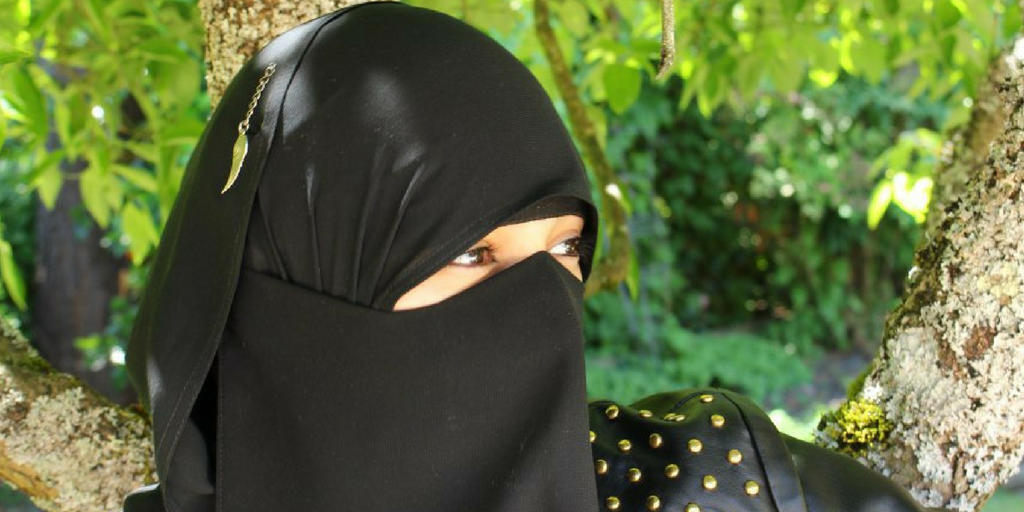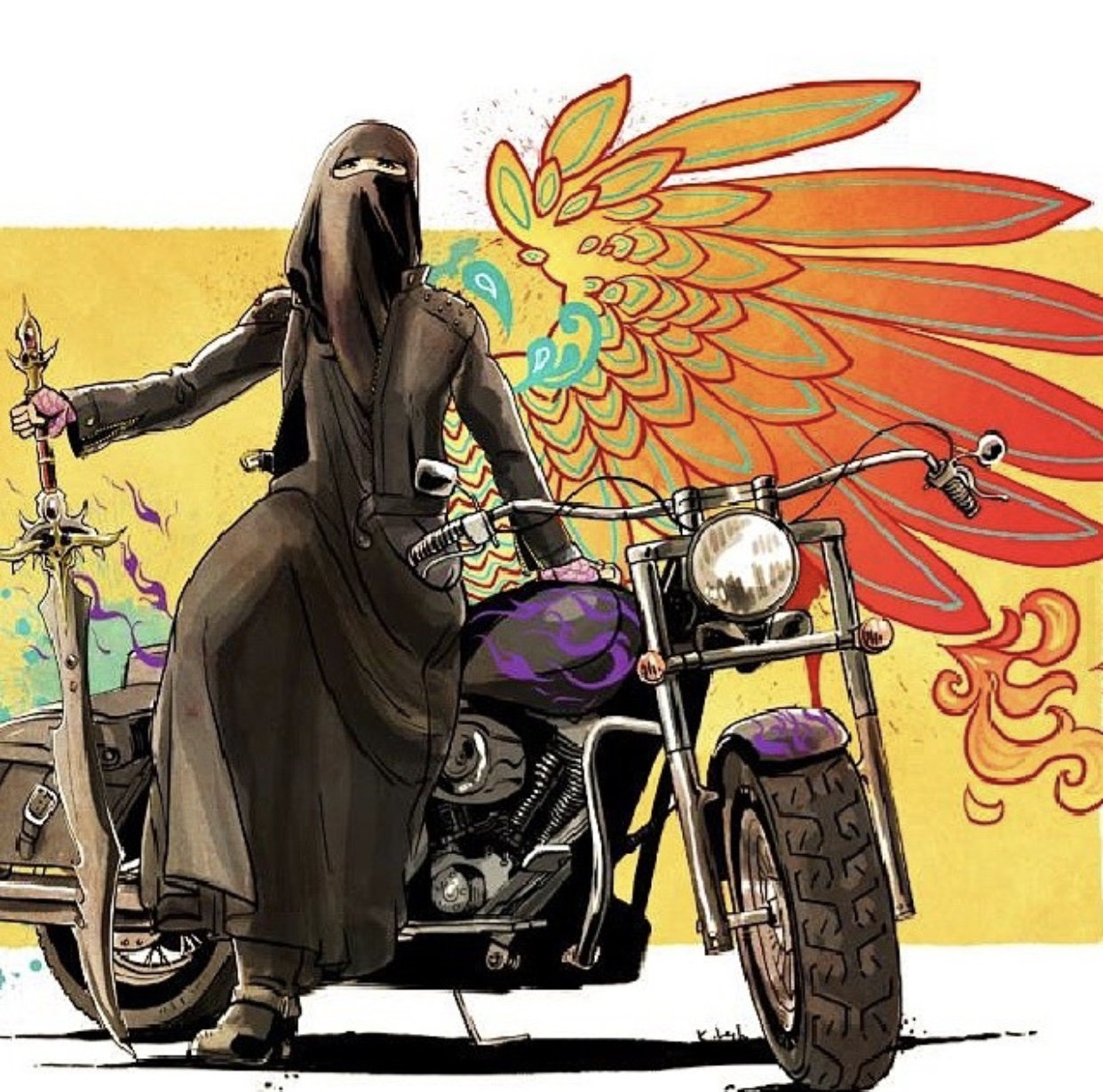“The Issue” is TMWT’s exploration of what Muslim women experience and the nuances that shape them. In this instalment, the TMWT team spoke with Zainab bint Younus, a Canadian gender-rights activist on Gender-based Violence in Muslim Communities.**
In recent times, Muslim communities have developed a large number of experts in gender-based violence (GBV). This is equally as interesting as it is progressive. While more people are needed to do this work, understanding the multidimensional complex nature of this issue is a stepping stone towards getting all hands on deck. The TMWT team has been fortunate enough to get our hands on Zainab bint Younus for a quick breakdown of gender-based violence in Muslim communities.
Zainab bint Younus is a Canadian Muslim Woman who writes on Muslim women’s issues, gender-related injustice in the Muslim community and Muslim women in Islamic History. She holds a diploma in Islamic Studies from Arees University, a diploma in History of Female Scholarship from Cambridge Islamic College and has spent the last fifteen years involved in grassroots da’wah. She was also an original founder of Muslim Matters. You can find her online on Instagram
TMWT: In what ways do gender-based violence manifest in Muslim communities?
Zainab bint Younus: Gender-based violence manifests in multiple ways in the Muslim communities. We have “universal” types of gender-based violence, such as domestic abuse, but we also have certain types that are unique to our community, such as when imams or other men in positions of community leadership actively prey on vulnerable women in the community (often by engaging in secret second marriages, or outright sexual harassment/ assault/ rape). Outside of the community, gendered Islamophobia – where visibly Muslim women are routinely the targets of overt acts of violence – is rampant, especially in countries where Islamophobia is constantly perpetrated through media and politics.
TMWT: What would our community look like if our gender equality goals were met?
Zainab bint Younus: This question requires a little more elaboration on what “gender equality goals” are! Broadly speaking, however, I would say that our communities should look like much safer spaces for Muslim women, by providing them with the safety and resources to be able to report abuse and to see consequences for the perpetrators of abuse. On a micro level, this would mean that families are raised with an Islamic understanding of gender interactions, roles, and rights and responsibilities, especially with regards to the severity of consequences in this world and the Next for men who abuse their position. On a macro level, this would mean that Muslim communities – whether centered on a Masjid or otherwise – have the resources and supports for victims of violence. Perhaps more importantly, proactive measures would also exist on a community level – for example, strict codes of conduct and ethics for all those involved in community work, with supervision and accountability.
TMWT: What are Muslim communities missing out on by not maximizing the talents of both genders?
Zainab bint Younus: As Sh Muhammad Akram Nadwi says, to stifle the talents and knowledge of Muslim women is no different from the burying of young girls in the days of Jahiliyyah! Our Ummah has always been strongest and at its most spiritually powerful when women were fully involved in every level of society, from family to the wider community, from scholarship to business, from activism to political engagement. Muslim communities are missing out on being able to utilize the potential of Muslim women in every field, especially those where we are most lacking qualified female representation: in Islamic scholarship, in community activism, and in many other fields of expertise (social work, counseling, and psychology are particularly valuable fields which the Muslim community often ignores or undermines).
TMWT: What could be the reason Muslim communities evade conversations around gender-based violence?
Zainab bint Younus: There are hundreds of years of cultural baggage to deal with, both from “the East” and the West. There is a sense of defensiveness, of not wanting to acknowledge the diseases that we have within our community because to do so feels equivalent to admitting to the non-Muslims that we are not as perfect and pure as we claim, or that we are as bad as they make us out to be.
There is social stigma in the community, making it difficult for both victims and bystanders to come forward about violence that is experienced or witnessed. There is a misconstrued sense of what is and is not religiously sanctioned in Islam, with many abusers and enablers justifying some forms of gender-based violence.
TMWT: Do you think Muslim communities have a room to improve our gender equality?
Zainab bint Younus: Absolutely! We are an Ummah of enjoining good and forbidding evil, and of establishing justice – even when it means speaking the truth against ourselves. AlHamdulillah, there are many individuals and organizations in the Muslim community who are working hard to end gender-based violence and oppression.

TMWT: What is one thing that Muslim women can do to end gender-based violence in our communities?
Zainab bint Younus: First of all, du’a and perfecting our worship of Allah. Secondly, ensuring that everything we do in activism and seeking justice and ending oppression, is done so by adhering to the Shari’ah and holding tight to Islamic spiritual ethics. Ending gender-based violence isn’t something that women can do alone; it is necessary for men to be on the same page and to share the same vision and goals. As Muslim women, we can and must do da’wah – within our homes and outside of it – so that Muslim men can be educated just as we must educate ourselves on the realities of gender-based violence and the many ways to end it. Education, raising awareness, and effective da’wah are all powerful tools in achieving this goal, inshaAllah.




